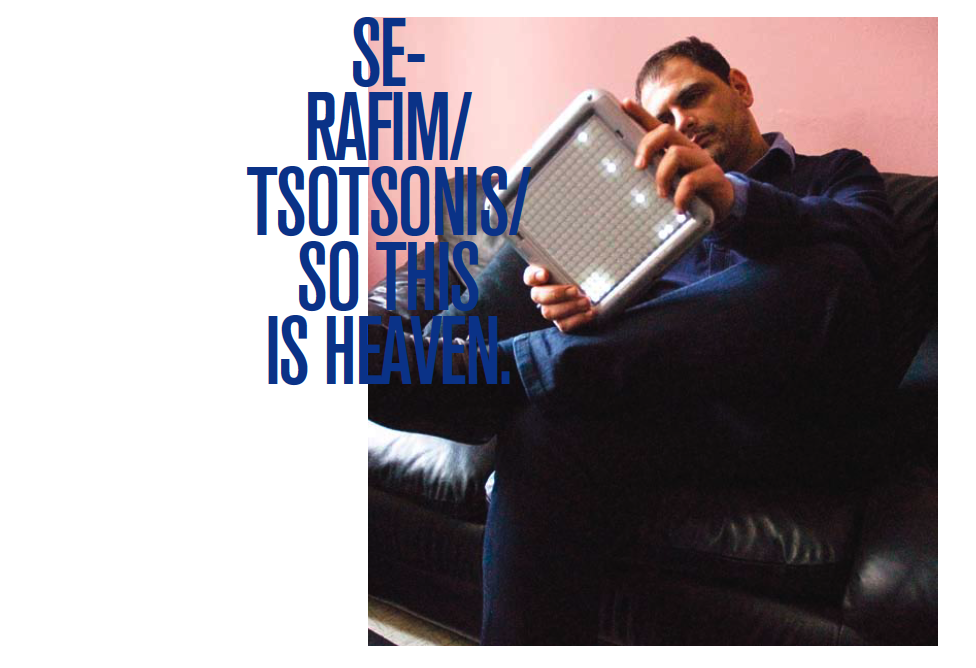
His first solo work was met with critical acclaim in Greece as well as abroad; Ozon caught up with Serafim Tsotsonis and talked with him about his musical experimentations.
Did the success of “Peak”, your first LP, put extra pressure on you with regards to your next step? The issue with the first album was whether it would capture a wider audience; my anxiety regarding the second album was how it would be received since my first album garnered very good feedback. I wanted to develop and go a step further. For this album I wanted to experiment with different sounds and combinations, I wanted to get a result that was pleasing for both me and the listener.
How would you describe “So This Is Heaven” and how does it differ to your previous work? “So This Is Heaven” has a rather electronica-pop-avant garde style, whereas “Peak” was more new wave and ambient sounding. As far as structure and form are concerned I stepped away from the minimal approach I took with “Peak”; my aim was to achieve multiplicity in terms of synthesis, treating voices like instruments and making instruments sound warped.
How did you make the transition from classical piano studies to electronic music? How important is your classical background to your current work? They weren’t two different processes; at the same time as studying the piano I wrote electronic music (ambient and experimental). My classical training has heavily influenced the nature and development of my work.
What are your influences? What artists or music have helped you shape your sound? Artists and bands that have been a great influence on me include: Gustav Mahler, Arvo PaÅNrt, Brian Eno, David Bowie, Pink Floyd, Joy Division, Queen, and the Smashing Pumpkins as well as a number of post- rock and new jazz artists.
You’ve composed music for film, documentaries and theatre plays; how did you find these experiences and how different does your approach need to be in comparison to your own productions? They were all great experiences in terms of the different approach required due to the theme, the medium and the audience. Initially the director sets out some guidelines he wants to work within and therefore contribution is divided between more parties. In personal projects you get to make the decisions yourself and therefore have sole responsibility for the sound, the synthesis and the production, while being constantly influenced by the people you work with.
You’ve composed tracks for video art projects; what is your relation to visual arts? With my father being a religious iconographer, color combinations and compositions were an important part of my upbringing. My sister is also into painting and video art, so it became a challenge for me to try and put sound to the picture.
Apart from a constantly evolving music career, you are also a father of two; how difficult can it be to combine family life and a career that requires you to tour a lot? Having children changes your perspective on life; it affects your way of thinking, your attitude towards things and your inspiration. Everything goes on as normal it’s just the thoughts of your loved ones that follow your every step.
What has been the most important moment in your career until now? Without question it has to be the release of my debut LP; it introduced my sound to a wider and more demanding audience and provided me with a great deal of satisfaction.




